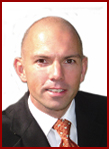‘It is no longer sufficient for investors just to come up with the right asset allocation and responsive risk management; they must also undertake more rigorous assessment of investment managers to ensure investment and business models are sustainable’. By Niklas Tell…
Fund and manager selection has never been easy but it used to be fairly straightforward. It was about finding managers with skill and, depending on the reason for the selection exercise, combining managers to a well-rounded portfolio. It is straightforward no more, as additional and arguably more complex parameters have entered the fund selection equation.
n a recent column in the Financial Times Mohamed El-Erian, the chief executive of fixed-income manager Pimco, reviewed the major structural challenge ahead for the investment management industry and stated: “These factors will inadvertently result in a major but uneven shrinkage of the investment management industry during 2009 and 2010. This unintended consequence will be felt most intensely in the levered (or alternative) space dominated by hedge funds and private equity firms. But it will spread well beyond that to traditional investment managers, particularly in the equity space and among those that are part of declining banking conglomerates.”
El-Erian also asks what this means for investors. He could just as well be more specific and ask what this means for fund selectors. He offered the following answer: “The implications go well beyond another phase of pressure on asset prices. As difficult as it already is, it is no longer sufficient for investors just to come up with the right asset allocation and responsive risk management; they must also undertake more rigorous assessment of investment managers to ensure investment and business models are sustainable.”
This echoes what Antony John, the chief executive at Fund Quest UK, highlighted last autumn at the European Fund Manager Selection conference in London. There John focused on the increased need for independent operational due diligence looking at issues such as business model and infrastructure, operations, risk management processes and culture as well as legal and compliance disciplines.
After spectacular events such as Madoff and more recently the collapse of a fixed-income hedge fund at London-based Weavering Capital, it is easy to see the need for increased focus on other issues than just understanding the investment philosophy and process followed by the fund manager.
But it might also be fair to say that some of the due diligence responsibilities should fall on supervisory authorities. When investors do not trust supervisory authorities they turn to private investigators, as recently reported on Bloomberg (‘Hedge-Fund Investors Hire Private Eyes to Avoid New Madoffs’). In the article, Pete Turecek, a senior managing director overseeing hedge funds at Kroll Inc, a risk-consulting company in New York, said: “Investors are being more careful in checking out where they put their money.” I guess that is about time. After all, asset management is really all about taking on a fiduciary responsibility.
What is your take?
- Mohamed El-Erian says investors must undertake more rigorous assessment of investment managers to ensure investment and business models are sustainable. Do you see this as further proof that fund and manager selection is a profession that is not only here to stay but grow?
- Do we need other qualifications in fund selection teams to handle increased focus on operational due diligence or is this already an integral part at fund selection teams today?
- Following recent events, where in some cases criminal activities has been involved, what due diligence responsibility falls on the fund selector and what must fall on supervisory authorities? What should fund selectors be able to take for granted, if anything?
Please remember to keep us updated at [email protected] and www.fundselection.org/blog.
Niklas Tell is a partner at Tell Media Group AB
©2009 funds europe





